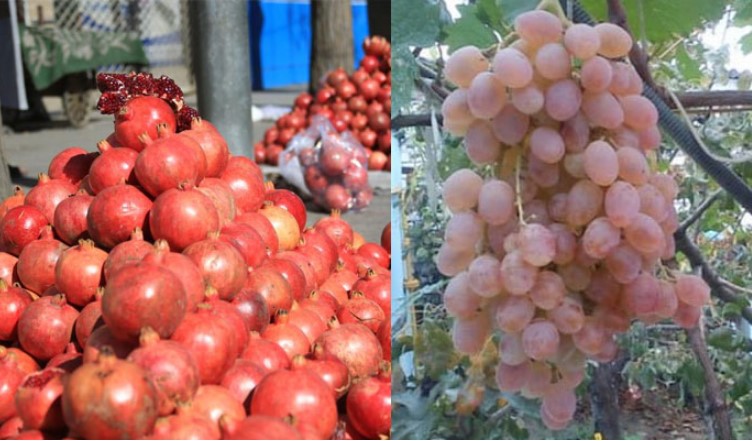The closure of the Pakistan-Afghanistan border amid recent tensions has paralyzed cross-border trade and sparked a sharp price hike in fruit markets across northwestern Pakistan.
Market sources reported that fruit prices have nearly doubled since the closure of the Torkham crossing, one of the main trade gateways between the two countries.
The price of grapes has soared from PKR 400 to 800 per kilogram, pomegranates from PKR 300 to 600, and apples from PKR 200 to 400.
🚛 Supply Chain Disruption
Dozens of trucks and containers carrying Afghan produce — including grapes, apples, and pomegranates — remain stranded along the border, causing significant supply shortages in Pakistani markets.
Before the closure, hundreds of tons of fresh produce and dry fruits crossed daily from Afghanistan into Pakistan.
A local trader told Khabrain News:
“The blockade has raised not just fruit prices, but also storage and transportation costs — all of which are being passed on to consumers.”
💱 Economic and Regional Implications
Economists warn that the effects of the shutdown could extend beyond fruit prices. If prolonged, it may lead to higher costs of food, fuel, and essential goods, particularly in border regions dependent on Afghan imports.
Although a ceasefire has reportedly been reached, trade resumption remains uncertain. Experts say the situation has once again highlighted the fragility of regional supply chains and their direct impact on ordinary citizens.



